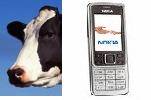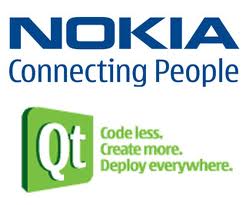Deliverying Livestock Insurance through ICT
Posted: January 14, 2014 in UncategorizedTags: eAgriculture, ICT4Ag, Livestock Insurance, MAgriculture
A Model for designing M-Agriculture Applications for Dairy Farming
Posted: January 23, 2013 in PublicationsTags: African Journal of Information Systems, AJIS, dairy farming, ICT4D, M-Agriculture, m-kulima, MAgriculture, mkulima, Mobile Computing
 Recently I was honoured to have a paper accepted for publication in the African Journal of Information Systems. The paper was titled A Model for designing M-Agriculture Applications for Dairy Farming. The aim of the paper was to study the implementation of mobile systems in agriculture and present a model for designing such applications. The study shows that models exist for general mobile applications design and development, although none specifically suits mobile agriculture applications. A model for designing and implementing M-Agriculture applications is presented in the paper. It concentrates specifically on dairy farming and shows how various stakeholders in this sector can share a mobile platform that meets their various needs.
Recently I was honoured to have a paper accepted for publication in the African Journal of Information Systems. The paper was titled A Model for designing M-Agriculture Applications for Dairy Farming. The aim of the paper was to study the implementation of mobile systems in agriculture and present a model for designing such applications. The study shows that models exist for general mobile applications design and development, although none specifically suits mobile agriculture applications. A model for designing and implementing M-Agriculture applications is presented in the paper. It concentrates specifically on dairy farming and shows how various stakeholders in this sector can share a mobile platform that meets their various needs.
From the conducted research, it is evident that most of the areas with inefficiencies (e.g. access and sharing of information) can be addressed using mobile technology. The designed model can be used by software developers to create mobile applications that are focused on dairy farming and to implement the various business processes involved in that agricultural sector. The model can also be adopted by policy organizations and government agencies in their proposals on the usage of technology as a key driver towards economic growth. Moreover, researchers can use the proposed model as a basis for improvement towards existing mobile application development models and frameworks or to develop new ones. Further work may be done to test the model in other areas of agriculture, e.g. crop farming. Also, agri-business components can be added to the model to enable the participation of other agriculture stakeholders who were not included in the presented model.
Mobile Apps in key economic activities
Posted: February 13, 2012 in Mobile TechnologyTags: economic growth, mobile apps
 Apps, Apps and more Apps! There seems to be a mobile app for almost anything, from entertainment, sports, business, religion, and the list is endless. The innovation of mobile apps has added the value of having a good mobile phone that can handle an installable application. With the java platform having the highest market share in installable apps platform(over 1 billion mobile phones), it brings in a good opportunity for developers to come up with apps for almost everything.
Apps, Apps and more Apps! There seems to be a mobile app for almost anything, from entertainment, sports, business, religion, and the list is endless. The innovation of mobile apps has added the value of having a good mobile phone that can handle an installable application. With the java platform having the highest market share in installable apps platform(over 1 billion mobile phones), it brings in a good opportunity for developers to come up with apps for almost everything.
But how does these innovations come in handy for the developing world? It is a fact that there are more mobile phones than computers in any developing nation. In this case, the mobile phone becomes the ‘computing device’ of choice for any process that might require automation or efficiency using technology.
Areas such as agriculture, mining, industry, manufacturing, energy and tourism are some of the major economic sectors in developing nations. Most of these are marred with inefficiencies that could be tackled by simple mobile apps that could be almost effortless to develop by most mobile application developers. Amazingly, the stakeholders in these sectors may not be aware that it is possible to develop mobile applications that can solve some critical problems they have been facing over the decades. It is then upon to the developers to approach the stakeholders in this economic sectors and make them aware of the power of the very mobile phone they already own.
~ ~ ~
Between stimulus and response there is a space. In that space is our power to choose our response. In our response lies our growth and our freedom.
Viktor E. Frankl
Mobile Computing Diploma and Certificate programs at Africa Nazarene University
Posted: April 28, 2011 in Mobile TechnologyAfrica Nazarene University has started a Mobile Computing Diploma and Certificate programs to begin this May (2011). The courses are aimed at building Entrepreneurs, Academicians (researchers /trainers) and software developers who are ready to venture in mobile technology.
The course will be delivered on flexible times and the cost is relatively low for the quality of training the student will receive.
More inquiries can be sent to agichamba@anu.ac.ke
 Is there anything wrong with the M-CHURCH idea? Yesterday, a local Kenyan church put a newspaper advert announcing an SMS powered service that people can use to receive help in matters such as political ambition, marriage and bearing children. The service is backed up by a help line that someone may call for more help/inquiry concerning the matter at heart.
Is there anything wrong with the M-CHURCH idea? Yesterday, a local Kenyan church put a newspaper advert announcing an SMS powered service that people can use to receive help in matters such as political ambition, marriage and bearing children. The service is backed up by a help line that someone may call for more help/inquiry concerning the matter at heart.
The timing of this SMS service may not get along very well with most Kenyans, since majority would like to compare it with SMS gambling games that have been going on for a while now, and that took the country in a frenzy towards the end of 2010. Actually, almost every TV station had their SMS lottery show, with some affording to give millions in a week. So is there a relationship between the SMS lottery services and the M-CHURCH idea? To answer that, we got to observe the revenue models adopted in the two scenarios. Notably in the M-CHURCH case, there is no car to be won, a house or even Ksh.90m to be won, just an encouraging scripture and probably a ‘follow-up’ number to call.
From my own perspective, the M-CHURCH is not really a bad idea if the intention was to spread the gospel and help people in matters of life using biblical truths and principles. Everything has a price…right? In this case, Ksh.10 is the price to pay for the M-CHURCH service.
However, there is a delicate line between the intention to make money and the desire to help Kenyans use the bible as a reference to get solutions to life’s teething issues.
To use or not to use the M-CHURCH service is a personal choice. The truth is, someone will benefit from it, someone will make money out of it, someone will criticize it, and of course another Kenyan will start another M-CHURCH!
 Mobile phone manufacturers have created a new interest in Africa, because of the growing mobile developer community, especially in East Africa(Kenya leading) and southern Africa.
Mobile phone manufacturers have created a new interest in Africa, because of the growing mobile developer community, especially in East Africa(Kenya leading) and southern Africa.
The endeavor has seen leading companies like Nokia and Samsung hold developer meetups and training forums, all aimed at having developers introduced to their development platforms, most of which are free to download and install. Recently, Nokia held a mobile boot camp at the University of Nairobi to train mobile developers from academic institutions, development companies and individuals.The training focused on JavaME and Qt, the development platform for symbian applications, targeting Nokia’s wide range of smartphones. It was also an opportunity to interact with members of Nokia Forum, the leading developer community forum for Nokia developers all over the world.
With the new focus on Africa, its time for mobile applications developers to pitch their ideas and take advantage of the resources which are being availed to support mobile technology growth within the continent.
Samsung is not being left behind. They held a developer workshop at ihub, and showed demo apps developed on bada, Samsung’s smartphones platform.
Currently, there are mobile apps development competitions for both Nokia and Samsung, both with December deadlines. Its time African developers focused on mobile applications development, to enable the use of a mobile phone for much more than just communication.
Mobile technology entrepreneurs in Kenya are taking technology to a whole new level by introducing products that are applicable in the mainstream economic activities of the country.
As more Africans acquire mobile phones, the best use of this gadget should be making lives better for the low income earners and enhancing business processes.
In the near future, Africa is going to set up the pace of using mobile technology to tranform social, political and economic growth of a country.
Most of these applications are being done by ambitious young people who are passionate about Changing Africa using Mobile Technology.
M-PESA in partnership with Grundfos for rural water provision
Kitui, September 4, 2009……..Listed telecoms operator Safaricom has entered into a
partnership with Grundfos LIFELINK, part of the worldwide pump manufacturer
Grundfos, that allows rural communities to access safe water and pay for it through the MPESA
money transfer service.
The unique partnership officially launched in Katitika, Kitui District today, uses M-PESA’s
Pay Bill functionality. It transfers a subscriber’s M-PESA balance to a smart card which can
then be used to draw water at subsidized rates from automatic water systems specially
developed by Grundfos.
Speaking during the launch, Safaricom Chief Executive Officer Michael Joseph said the
partnership was in line with the company’s commitment to supporting worthy causes
within communities and deploying appropriate technologies to answer society’s challenges.
“Safaricom is at the forefront of supporting worthy causes such as the provision of clean,
safe drinking water and generally assisting the communities in which we operate. This
principle is not just ingrained in our corporate giving function. It is at the very core of our
commercial drive as M-PESA shows,” said Joseph.
Grundfos LIFELINK is working to develop and promote a sustainable solution to rural water
supply in developing countries. General Manager Lars Laursen of Grundfos LIFELINK
(Kenya) Ltd. said the company would use the Grundfos Group’s wide experience in
advanced pumping technology to ensure communities in water-deficient areas have a
steady flow of safe drinking water.
“With this launch, rural water supply in Kenya takes a leap into the future with a new and
sustainable solution for small rural communities. By using a smart card, financial
sustainability and good governance is ensured and the exchange of cash is avoided. The
price of water will be close to the prices generally paid for the same in the rural areas,” said
Mr. Laursen.
Under the arrangement between M-PESA and Grundfos LIFELINK, each user is provided
with a smart card fitted with a micro-chip. The user is able to buy water by depositing
money from their M-PESA account into a Grundfos M-PESA business account under the Pay
Bill functionality.
The money is then loaded into the user’s smart card. Each time the user needs to buy water,
the smart card is inserted into a slot on the tapping point and water automatically starts
running until the card is removed and the amount corresponding to the amount of water
tapped is deducted from the card.
The project has several inbuilt features to ensure sustainability. Through M-PESA, the
beneficiaries contribute to a community trust that pays for the solar powered water
pumping system from Grundfos. The money also caters for the maintenance of the system.
The community acquires the water pumping system on credit and at affordable rates. The
system has a business model that enables the communities to acquire the pump while
paying for the investment gradually through utility fees.
Mr. Joseph said that apart from being a reliable money transfer service, M-PESA would
continue to enter into strategic partnerships with other institutions aimed at improving lives
and meeting changing customer requirements. Such initiatives have been a major driver for
the service’s leadership in Kenya.
“M-PESA will continuously seek strategic partnerships with key service providers in other
industries such as public utility companies, government agencies, banks and other financial
institutions and other service providers in our endeavour to come up with innovative
products and services to meet the requirements of our customers and business partners,”
said Joseph.
The project, whose launch was presided over by Water Minister Charity Ngilu is the first
one of its kind in Kenya with a commitment from the partners to spread it to other
drought-prone areas. Safaricom Foundation, the telecom firm’s corporate giving arm, which
runs a portfolio of water projects in the country, is already in talks with Grundfos LIFELINK
to use the model to embed accountable and sustainable community management in some
of its projects.
The model also includes a local service organisation for regular maintenance of the system
and service calls. Courtesy of the Safaricom infrastructure, the unit’s performance is
monitored real-time via the Internet and failure messages automatically relayed.
For environmental sustainability, the water systems run entirely on solar energy. This
eliminates problems and expenses traditionally associated with diesel-driven or handoperated
pumps.
About Grundfos LIFELINK: Grundfos LIFELINK is a subsidiary of the world leading water
pump manufacturer Grundfos, which employs more than 18,500 people in 81 companies in
45 countries worldwide. With an annual production of more than 16 million pump units,
Grundfos is one of the world’s leading pump manufacturers. The Grundfos Group has more
than 60 years of experience in developing, selling and servicing pumps for water supply,
industry and building services. It equally has a long tradition for innovation and corporate
social responsibility.
About Safaricom’s M-PESA service: Launched in partnership with Vodafone in March 2007,
Safaricom’s M-PESA is the first commercial mobile money transfer system anywhere in the
world. Designed to answer to the needs of the unbanked and people outside the formal
financial system, this trailblazing innovation has had phenomenal success, to global acclaim.
According to July 2009 figures, M-PESA today serves a growing clientele of over 7 million
subscribers through an agency network estimated at over 12,000. It has handled over Sh210
billion in person-to-person transfers since launch, while the monthly cash flow has reached
Sh20 billion.
I have been amazed by very many previous Innovations in the word of IT, but this one beats most I have seen. I must say the guy is a genius, and probably showing us where the future of Computing is headed.
Sixth Sense Technology is definitely one of the greatest inventions of the 21st Century.
Mobile Applications Course:Africa Nazarene University
Posted: December 9, 2009 in Mobile TechnologyTags: Africa Nazarene University, j2me, java me, kirdi, mobile applications
The curtains came down on the first edition of Africa Nazarene University’s short course on Mobile Programming using Java. The class had 30 students, most of whom were third years and fourth years pursuing Computer Science and Business and Information Technology degree programmes.
The intake was overwhelming, but I could only take 30 students in the class. It showed the student’s interest in Mobile technology, and thus the need to have more such sessions offered frequently.
At the end of the course, students came up with projects which were showcased to the rest of the Africa Nazarene University community on 27th Nov. 2009. In presence also were officials from KIRDI (Kenya Industrial Research Institute), a national research institute under the Ministry of Trade and Industry mandated to undertake multidisciplinary research and development in industrial and allied technologies. The officials considered to register some of the projects in the nationally funded Incubation programme at KIRDI center in Nairobi, Kenya.
The next class begins on 16th January 2010, and will run for the next four Saturdays, starting from 8:30AM – 1:00PM.
This time round, I expect the class to be a better experience, for myself and the students, since I have picked some of the best students in the previous class to be lab assistants. I believe this will make things move faster, and will add positively on the students’ experience.